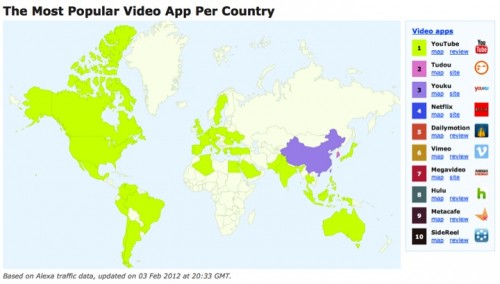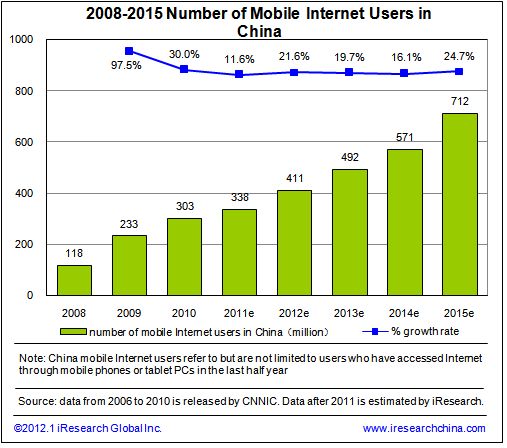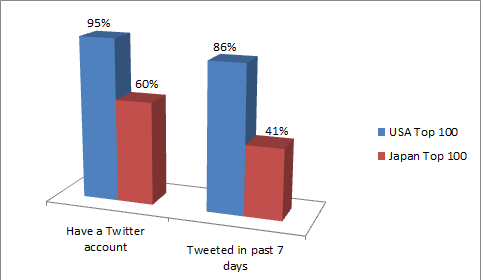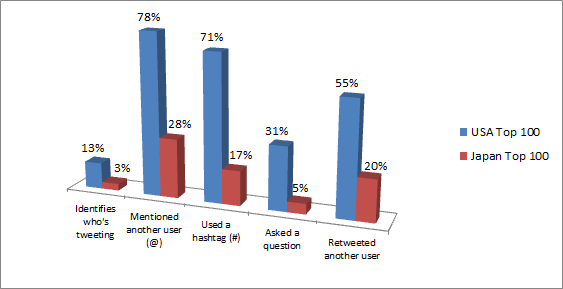We Are Social Asia Tuesday TuneUp #14
Tudou partners with Sina Weibo for seamless video-sharing
Chinese video-sharing site Tudou has introduced an enhanced video-sharing platform that will allow Sina Weibo users to upload and share videos seamlessly to and from Tudou’s website, and enable users to sync comments and discussions on both platforms. Tudou stands to benefit greatly from Sina Weibo’s 250 million registered users, especially since all Sina Weibo users that are not already Tudou members will be signed up automatically once they share content between both sites. This is an interesting development considering that many brands on Sina Weibo have chosen to establish a branded channel on Youku as it is the largest video-sharing platform, and the videos that remain on their Sina Weibo branded homepages are hosted on Youku.
Most popular video website by country
AppAppeal has mapped out the most popular video websites across the world, and YouTube has almost taken over the world except for two countries – China and South Korea. As illustrated by the map below, Youku is the most popular website in China, ahead of its rival Tudou which has just partnered with Sina Weibo to offer a more seamless video-sharing experience. Catering to China’s 400 million online video viewers, Youku has 25.6% of the online video market in China, while Tudou has captured 14.5%. Interestingly enough, Tudou is the most popular video website in South Korea, and is ranked 4th most popular website in the country, even though it is only available in the Chinese language.
China will have 712 million mobile users by 2015
iResearch estimates that there were 338 million mobile subscribers in China by the end of 2011, and this figure would more than double to 712 million by 2015.
How brands in US and Japan embrace Twitter
An interesting study by Associate Professor Adam Acar and his students at Kobe City University of Foreign Studies discovered that although Japan has more active Twitter users than US, Japanese brands aren’t exactly capitalising on netizens’ penchant for microblogging, and are behind their American counterparts in terms of Twitter adoption. Only 60% of top Japanese brands have a Twitter account, compared to an astounding 95% of American brands, and only 41% of these brands on Twitter have tweeted in the past week, compared to 86% of American brands.
American brands also appear to be more adept at communicating with their consumers, as 78% will refer to another user by their Twitter handle, compared to 28% of Japanese brands. 31% try engaging consumers by asking questions, compared to 5% of Japanese brands.
Of course, Acar did qualify this disparity to Japan’s “culture of reservation, formality, harmony and risk avoidance”. Even so, we expect to see Japanese brands adapt to keep pace with Japan’s evolving social culture.
Facebook Files for IPO; Reveals $1 Billion in 2011 Profit
Facebook’s IPO filing this week has revealed:
- Facebook’s total ad revenue in 2011: $3.15 billion
- Share of revenue attributed to advertising: 83%
- Share of revenue that was advertising at the beginning of 2010: 99%
- Percentage of sales in the U.S.: 56%
- Amount of revenue sourced from Zynga: 12%
- Facebook 2011 profit: $1 billion
- Revenue generated from virtual goods: $557 million
- Global monthly active users: 845 million
- Daily likes and comments: 2.7 billion
- Likely Facebook market valuation: $75 to $100 billion
- Mr. Zuckerberg’s ownership stake: 28.2%
- Mr. Zuckerberg’s voting power: 56.9%
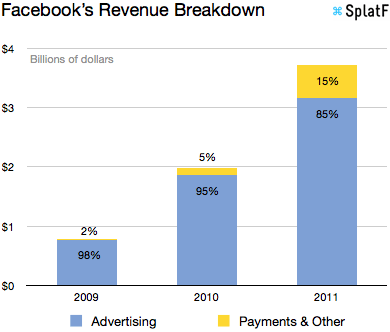
Agencies: 89% Facebook, 39% Twitter, 18% Google+
There is no doubt that Facebook will play the dominant role in 2012. 89% of agencies plan to utilize the medium for their clients in the future, with 39% using Twitter, 36% wanting YouTube and 21% choosing Linkedin, and a surprisingly high 18% for Google+.
Social networking more addictive than cigarettes or alcohol
A new study suggests that social networking services such as Facebook and Twitter are more addictive than cigarettes or alcohol. It even claims that sleep and sex may pose as stronger urges, but people are more likely to succumb to yearnings to use social and other media. The results will soon be published in the journal Psychological Science. We’ll keep you posted.
Facebook ‘likely to roll out mobile ads in weeks’
Given recent IPO filing admitting it was weak on mobile advertising, its unsurprising that its plan is to bring out mobile ads within the next couple of weeks in order to generate advertising revenues. January 2012 saw featured stories within users’ news feeds for the first time so it makes sense that mobile ads would be the next logical step forward. In December it claimed to have 425 million monthly active users using its mobile products, which is around half of its total monthly active users, and 21% growth from September’s 300 million figure.
Facebook groups get Timeline-like cover photos
Facebook groups now have cover photos which are consistent with the Timeline design – you have the options to change the cover photo but the group wall has been kept the same.
Corporate blogging declines as newer tools rule
A study on the usage of social media in Inc. 500 corporations shows fewer of them are using blogging, message/bulletin boards, online video, podcasting and MySpace and more are using Facebook, Twitter, LinkedIn, YouTube and Foursquare.
The platform most utilized by the Inc. 500 is Facebook, with 74% of companies using it. Virtually tied at 73% is the adoption of the professional network, LinkedIn. The use of corporate blogs dropped to 37% from 50% in 2010, as this mature tool evolves into other forms or is replaced by communication through Facebook or Twitter.
Social media tools are seen as important for company goals. 90% of responding executives report that social media tools are important for brand awareness and company reputation. 88% see these tools as important for generating web traffic while 81% find them important for lead generation. 73% say that social media tools are important for customer support programs.
Twitter opens enhanced profile page beta trial to UK brands
Twitter last week launched enhanced beta trials of profile pages to certain UK brands, with Asda, Sky, EA Sports Fifa and Cadbury the first brands given the opportunity to try out live brand pages.
Twitter and LinkedIn’s revenues: an update
With the release of Facebook’s detailed figures, it worth comparing them to those of LinkedIn and Twitter. Where Facebook made $3,150,000,000, Twitter managed a poultry $139,500,000 – over 20 times less:
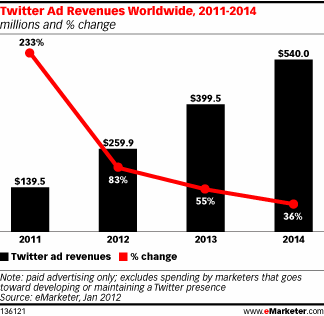
LinkedIn fared little better with $154,600,000:
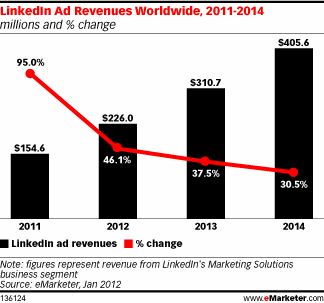
Google+ passes 100 million users
Paul Allen has been doing his usual research into Google+ user figures, and according to him, the site has grown by more than 10% between January 19th and February 1st, passing 100 million users. If these growth rates continues, marketers will be unable to ignore Google+.
Pinterest drives incredible referral traffic
According to Shareaholic, Pinterest drives more referral traffic than Google Plus, YouTube and LinkedIn combined, and is also showing impressive growth month-on-month:
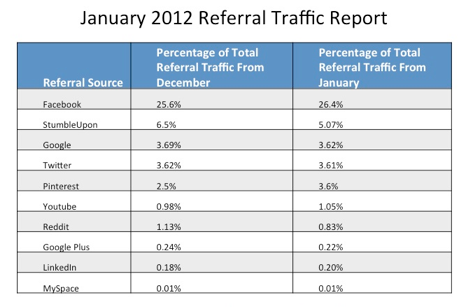
Superbowl hits record for Tweets per second
Last night’s Superbowl broke a record for the most Tweets per second (TPS) for a sporting event. According to Twitter, the average TPS was 10,000, with the peak hit at 12,333 TPS. The way records like these keep on falling, we can only speculate what, say, the 2014 World Cup final will be like.
Something useful from Foursquare!
The Superbowl also produced something useful from Foursquare – many Americans order pizza for their Superbowl parties, and if they checked in on Foursquare, they got $5 off their order, providing they paid via American Express.
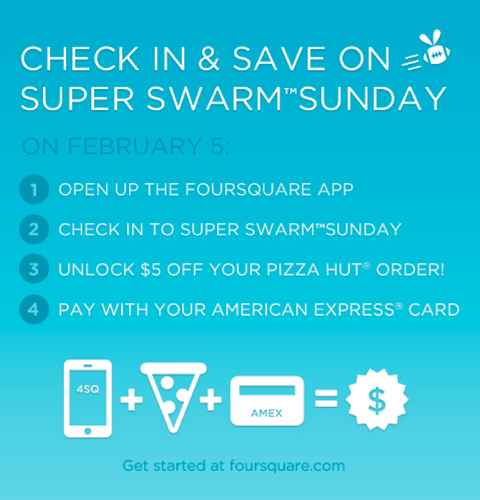
KLM launch ‘Meet and Seat’
KLM have launched Meet and Seat, a new social way of flying. Essentially, when checking in online, customers can link up their social profiles, so fellow passengers can see their interests and what they look like and choose to sit next to them accordingly. Clever.
KLM reach a million fans, release video
In more KLM news, they recently reached a million Facebook fans – and celebrated with a video from many of their staff members saying thanks. It’s really simple but it’s, er, taken off quite well.
Heineken launches Facebook app as part of wider Valentine’s push
Beer brand Heineken have launched a Facebook app as part of a wider push to make the brand appeal to younger men. The ‘Serenade’ app lets fans send one of 640 songs in 20 languages as a date invite to their Valentine. To determine what song is sent using the Serenade app, participants must answer five questions including, “who they would like to take on a date” and “why their chosen date should step out with them”. Ten out of ten.
Another hashtag campaign gone wrong
RIM, the makers of BlackBerry launched a social media campaign last week around a squad of cartoon characters called the Bold Team, together with the hashtag #BeBold. Just like the McDonalds fail of a few weeks ago, the negative sentiment towards RIM was taken up by the masses, with the hashtag abused to (somewhat) amusing effect…
Toyota spams Twitter around the Superbowl
The year is 2012. 2012, remember that. Because if in 2008 Toyota’s fail around this weekend’s Superbowl might have been forgivable, it’s not now. Essentially, they spammed everyone tweeting on hashtags around the Superbowl with tweets about winning a car. Before suspending the accounts when The Next Web pointed out how bad it was. And it really was very, very bad.
Facebook users’ views up in lights in Times Square
Meanwhile, on the other side of the pond, with the 2012 US Presidential Election now just months away, a new Facebook app has been launched which tracks users emotions towards certain issues and put thems up in lights. The app, called 2012 Matters: What Matters Most will poll users, with questions in their news feeds asking them which of two issues matters more — say, the economy or the environment. When a user answers the question, the result will show up on that user’s personal news feed and on friends’ news feeds. The friends also will be prompted to take the poll.
Once the app is installed, they can rank the three issues that are most important to them and opt in to having the results, including their Facebook profile photos, broadcast on the Reuters billboards, including in Times Square.
How social media habits differ between men and women
This infographic by uSamp shows that there is a clear gap between men and women’s willingness to share information online. While women are more willing to disclose their name, they are not as keen to share personal information such as their email addresses, physical addresses, locations, and phone numbers. Women are also less willing to share brands they like, with 75.8% claiming that they would as opposed to 79% of men surveyed who would.
